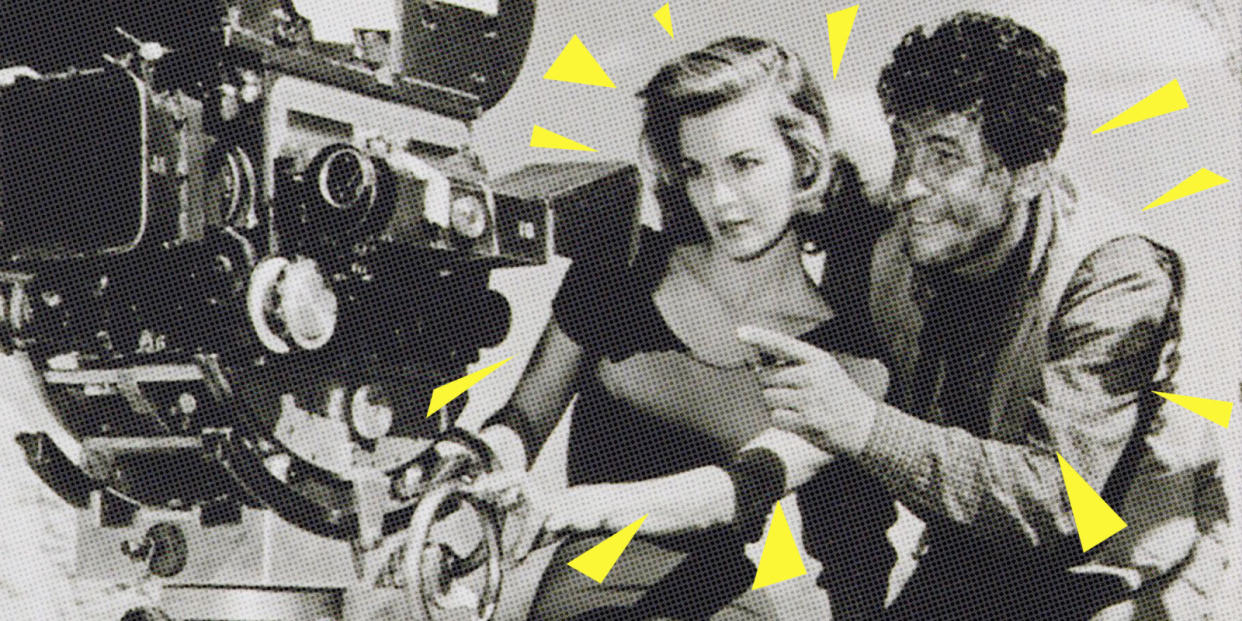How Salary Negotiation Really Works When You're a Woman in Hollywood

God this article wins for making me cringe as much as anything I've ever written.
I don't know if I'm paid equally to my male colleagues. My desire to fight for gender equality is matched only by how uncomfortable I feel asking the actor next to me how much he or she is getting paid. I'd sooner ask someone if he had a painful childhood than ask for the details on how his contribution as an actor is monetized. For reasons I have never examined, the question feels tasteless, almost immoral. And I have that that age-old character defect that kept my foremothers in bondage: I want people to like me.
My attitude about money, like my attitude about everything, tends maniacally towards obsession. To stave off insanity, I have to keep it simple: do I have enough today? Yes? Great. Of course, this makes me the perfect target for producers in Hollywood who want to save money by ignoring pay inequality.
But if Jennifer Lawrence and Emmy Rossum discovered a pay disparity, should I really just trust that I'm being treated equally to my male colleagues?
To get a bit more granular-because, as my own insecurities about the topic betray, there's far too much obscurity surrounding the topic-here's how compensation works in television, as far as I know.
At the moment, my job title is "TV Series Regular" on a new pilot for NBC. That's an actual industry term for a leading character who is guaranteed a minimum number of episode appearances per season.

As I understand it, most actors start out in their first series regular with a per episode fee that lives within the same general ballpark as the rest of the newbie acting pool (maybe there are deviations depending on the scope of the broadcast platform, or for people who come to the table with pre-established Instagram followings in the M's, but I'm talking about your run-of-the-mill NYU graduate who gets a network pilot). Like Cher Horowitz's grades, that fee functions as a jumping-off point for negotiations on each subsequent job deal.
The metric gets more complicated from here. My salary "quote" applies not only to jobs I actually take, but jobs I am in the running for. For example, during network pilot season, my agents could leak an offer from one studio to another studio, who could come back with a competing offer, and that offer would set the new starting price point for future producers. So every TV series regular's quote is a reflection of multiple factors, interplaying exponentially over time: how many jobs she's had, how many offers she has had to build a competitive quote, and how aggressively her agents have negotiated to raise those asking prices. Obviously, agents are a key piece of this. Thanks to my own beloved bloodthirsty watch dogs, I've felt pretty satisfied with this process.
As a case study, my (very, very) vague understanding of Emmy Rossum's situation is that when she signed her contracts for Shameless, her lesser salary compared to her male costar was the result of less time building her quote rather than a slight against her gender. Nonetheless, the jobs those actors performed on set were arguably the same and Rossum may have attracted as much revenue for the show as her male co-lead. As seasons passed, why shouldn't she be compensated equally for equal services rendered? Not to mention, THERE ARE FEWER JOBS WRITTEN FOR WOMEN, ESPECIALLY OLDER WOMEN, ESPECIALLY WOMEN OF COLOR, and so fewer opportunities to build a quote. In Hollywood, this is the true gender inequality problem.
Even while shooting a scene on Good Girls Revolt in which women discovered their male colleagues earned three times their salaries, we did not discuss our earnings on that job.
But all of this is based on assumption: I don't share my numbers and I don't ask other people about theirs, not even my best (female) friend. My security around my own quote comes only from taking other people's word for it and not from transparency in my work place. Even while shooting a scene on Good Girls Revolt in which women discovered their male colleagues earned three times their salaries, we did not discuss our earnings on that job. Only because of this article did I call my agents and ask for the first time, "um.. do I make the same thing as dudes?" The answer came as I expected it to, which is that I make more than the people with less experience and less than the people with more experience, gender neutrally.
But why is this so off limits, when the implications for me could be significant―not least for my bank account, but more importantly for the impact each woman's small rebellion makes for all women?
I had to point out my acute queasiness right from the outset because it's precisely this discomfort-induced secrecy that, in any industry, perpetuates pay disparity. Work friends aren't always real friends. It feels inappropriately personal to ask colleagues this stuff, so we don't ask, and in that secrecy sometimes money is apportioned in secretly inappropriate discriminatory ways.
So let's break down this discomfort. What fears are so great that they inhibit me from standing up for equality?
One, like I said, I want people to like me.
Two, I'm compensated handsomely and my needs are met. I'm hardly the person this pay disparity most greatly affects (but neither are Lawrence or Rossum, so that's clearly not the point).
Three, I am avoiding the painfully difficult work of taking action if I discover results that reveal inequality. And that is no insignificant three.
We are fighting politely for our survival.
Because, here's the heart of it, four: when it comes to being an actor, most of us are just so damn scared that our selection among the sea of other applicants was pure luck and we are holding on to our tenuous financial security with the light touch of grasping for dear life. Except for the occasional raunchy example that gets a lot of press, most of us behave ourselves, because we want to get rehired. There are a trillion actors for every one job. We are fighting politely for our survival. Some of us may even have that insidious imposter syndrome, the one that makes us believe our success is a mistake and we'll surely be found out at any moment for having tricked our employers into believing in us.
But by keeping all these numbers secret and not asking hard questions, am I really avoiding discomfort? Or am I becoming complicit in and prolonging a larger discomfort-one that means admitting to you that I don't know if I'm paid equally, and therefore I am not doing my part to support and protect myself and my sisters in this industry? One that means I'm a part of the force that keeps all actors and all women feeling small and afraid of being a "a problem"?
The solution, I think, means investing less in assumptions and leaning into awkwardness; having transparent conversations I have never ever had before with humility and the clarity that those conversations are hard but important. The heart of that courage lies in my very own self esteem: I am not an imposter, I am a proficient and capable employee, no better nor worse than my colleagues. I am not a problem. Hard questions are not a problem. Inequality is a problem. And I do not, nor does any woman, have the luxury of taking for granted that I am paid equally. We owe this bravery to each other.
You Might Also Like


